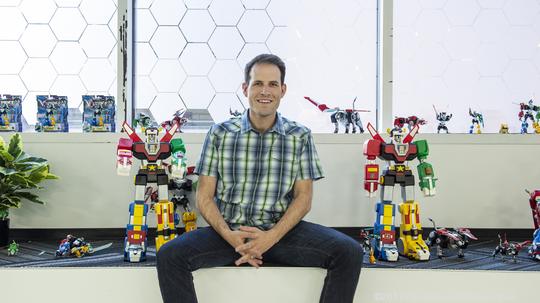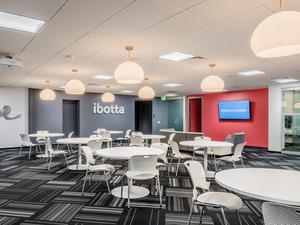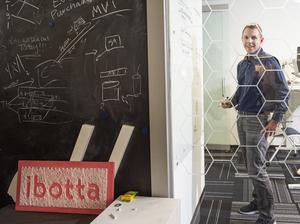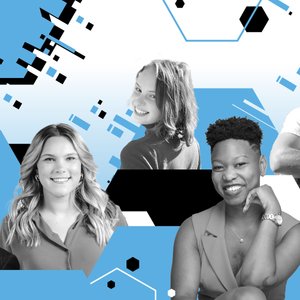
On March 11, 2020, Ibotta CEO Bryan Leach sent an email to 45 Front Range technology and startup leaders.
In his note to this who’s who of the local ecosystem, Leach asked for advice on how the leaders were handling the newly felt impacts of Covid-19. He asked them all to jump on a call in an hour to discuss next steps.
When nearly all of them made the call, Leach realized the importance and uniqueness of the situation.
Starting the next week, Leach hosted a call with these business leaders to discuss everything from office closures to mask mandates and vaccine distribution. The calls began as weekly, before ultimately moving to bi-weekly and now monthly.
The calls routinely include between 50 and 100 Colorado business leaders and often feature guest speakers like Gov. Jared Polis or state epidemiologist Dr. Rachel Herlihy. Topics often include common workplace challenges, from handling office returns to managing leases.
Now, a year after organizing the group, Leach is proud of the collective efforts of the tech community and the overall willingness to collaborate.
“It’s demonstrated something very true and unique about the Front Range tech community. At the end of the day, we understand that we have a leadership role to play in shaping the way workplace and public policy work to flatten the curve,” he said. “And I think we made a big difference.”
In tandem with this weekly check-in, Leach penned a joint statement on March 13, 2020, with 34 other Colorado tech leaders detailing a combined effort to have employees work remotely.
That list included CEOs and executives from many top Front Range technology companies and investment firms, including Lee Mayer of Havenly.
In running the online interior design services company, Mayer said she found herself struggling to balance the uncertainty of the early days of the pandemic, both with her business and the public health crisis.
Having a group of other leaders in similar boats was a crucial resource for her.
“To be able to have a group of people who understood those dual pressures of being a fiduciary for the company and your team and this massive nationwide health crisis was really helpful,” she said. “It was incredibly helpful because you’d get the tactical feedback and the emotional support.”
As many people and entrepreneurs did over the last year, Mayer found herself facing a number of challenges in determining the future of Havenly.
The company was about to sign a lease to expand its office at Denver’s Zeppelin Station when the pandemic hit. They didn’t sign that lease and now the company’s current lease is up in August and Mayer is weighing an entirely different office future.
“We’re really thinking differently, even though our team has expanded over the last year, we don’t expect our office space to expand, we expect it contract,” she said, adding that it will look different.

Mayer said the company expects to implement more flexible workspace as Havenly moves to a hybrid in-person and remote workforce.
Reflecting on the challenges of the last year, she said that the power of community is one of the first things that she’ll take with her. She specifically noted the impact the Denver tech community and the closeness she now feels.
“It doesn’t feel hard, if I need to reach out to someone in the community, I have a lot of ways to do it and now I know them,” she said.
As a member of the initial group, Foundry Group Partner Seth Levine said it served as a reminder of the importance of community to work through issues.
“The group that Bryan put together, but more generally the entire experience, was a reminder of how and why being a community is important,” he said.

At Foundry, Levine said the venture firm was getting people from its portfolio together on a regular basis to share stories, share frustrations and learn from each other.
“People had a real desire to be in community and that’s kept up, we continue to do that now. That’s been a real positive out of what’s been a challenging experience overall,” he said.
While the front range technology community has a reputation for its openness and willingness to help, Leach said the “barn raising” that came together in the early days of the pandemic was unique.
“I’d never seen anything remotely like this. These are people poaching employees from each other’s company, these are people competing for speaking slots at Denver Startup Week. We’re all friendly, but we’re also competitors at some level,” he said. “But we got on the phone and created a catalyst for people to get to know one other.”
Pointing to the caliber of entrepreneurs that frequently joined these weekly calls, Leach theorized that a collaboration like this couldn’t have happened elsewhere.
“I don’t think this would’ve happened in Silicon Valley or NYC,” he said. “I think it’s a concrete example of something that makes an ecosystem or community real and not just a cliché.”
And, while he’s not sure anything will bring the community quite as close as Covid-19 did, Leach is confident that people will answer the call in the future if needed.
“I feel like I can use this list and use the bat signal again in the future,” he said.









